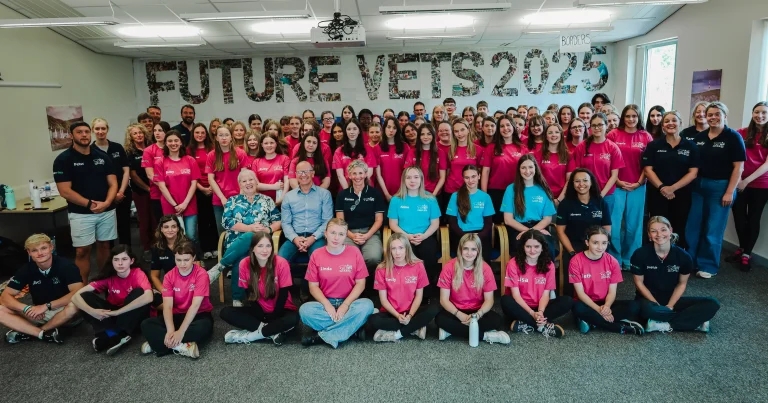13 Aug 2025
"Labour shortages aren’t just an inconvenience; they pose a serious threat to service provision" - Future Vets founder Karen Gardiner.

The head of a scheme seeking to inspire more young people into veterinary careers has called for a “radical rethink” to help prevent future workforce shortages in key areas.
The plea came as dozens of teenagers took part in the second Future Vets Scotland summer camp at the SRUC Oatridge campus in West Lothian.
The need to diversify the professions’ talent pool has been the subject of renewed focus in recent weeks, with experiences of racism and concerns about enduring financial pressures among the issues being highlighted. But project leaders believe research indicating a high proportion of clinicians are considering leaving the sector altogether, plus reported falls in the numbers moving into mixed practice, also emphasise the need for action.
Programme founder Karen Gardiner argued there was a broader collective responsibility to ensure veterinary care is fit for the 21st century – particularly in more remote areas.
She said: “Engaging more vets in mixed rural practice requires a radical rethink. Labour shortages aren’t just an inconvenience; they pose a serious threat to service provision.”
Out of nearly 70 camp participants, itself a significant increase on last year, nearly half were from areas of Scotland that are classed as either deprived or rural.
The group provided funding for many of them and is optimistic both of securing external support to offer more sponsored places in future years and that the camp will give them a support network of peers with similar ambitions to their own.
Officials also hope the project could act as a global pioneer for addressing veterinary workforce pressures and said they are already being approached by stakeholders in nations including Ireland and the US, who are seeking to address similar issues to those in Scotland, about running camps there.
But Dr Gardiner warned that reform efforts required “bold, courageous and emotionally intelligent leadership” and must be based on the world of today, rather than a “bygone James Herriot era”.
She added: “Clients are better informed, information is easier to access, technology is advancing. Economic challenges mean that providing appropriate affordable care is imperative.
“We need a veterinary profession that embraces the technological fast track we are living in.
“We have a collective responsibility to ensure that veterinary care in Scotland, and particularly in our remote and rural areas, is fit for the 21st century and the communities living there, protecting our farming, our heritage, our health and our people.”
Representatives from each of Scotland’s three vet schools also took part in the camp, which was praised by the country’s agriculture minister, Jim Fairlie.
He said: “There’s a culture that’s being embodied here, which I hope these young folk take on in the future, so they build a resilient community where they’re prepared to work together to make sure that this becomes the norm rather than the exception.”